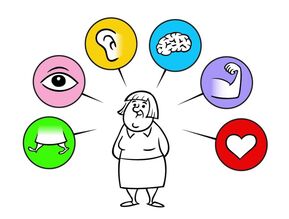Enhancing Social Activities: Aging and Place
|
In the face of an aging global population, the need for sustainable, effective, and compassionate care solutions has never been greater. Traditional long-term care facilities, while necessary, often cannot fully address the complex social and emotional needs of older adults. Recognizing this gap, our research at the AWL is pioneering the integration of technology and community-based solutions to redefine aging. By focusing on aging in place and leveraging the power of online engagement, our lab aim to empower older adults to maintain their independence and improve their quality of life through innovative non-medicated interventions.
|
|
Successful Aging Model
|
Successful Aging Model, introduced in the late 1990s and early 2000s, defines successful aging as the absence of disease and disability, the maintenance of cognitive and physical functions, and active engagement in social activities. The model aimed to promote positive aging and encourage older adults to maintain healthy behaviors voluntarily.
However, despite its intentions, approximately 90% of older adults fail to meet at least one of these criteria. Importantly, this model has inadvertently fostered new forms of ageism by creating a binary classification of successful versus unsuccessful aging. Experts in gerontology have proposed expanding and relaxing the criteria to allow a more diverse group of older adults to be considered successful. Nonetheless, this approach still risks perpetuating a divisive categorization of failure and success. Moreover, the model has not demonstrated a significant correlation with individuals' subjective psychological well-being. In other words, many older adults report feeling happy and satisfied with their lives, regardless of whether they meet all three criteria. Within this model, the aspect of active social engagement has received less emphasis, as good health is often seen as a prerequisite for social activities. Moving forward, we will explore alternative strategies that enable older individuals to maintain social activities, irrespective of their physical health conditions. |
|
Financial Capability
|
While empirical definitions of financial capability vary, it broadly refers to an individual's ability to use knowledge and skills to manage financial resources effectively. This involves planning, decision-making, and utilizing financial products in a way that aligns with one's best financial interests.
|



